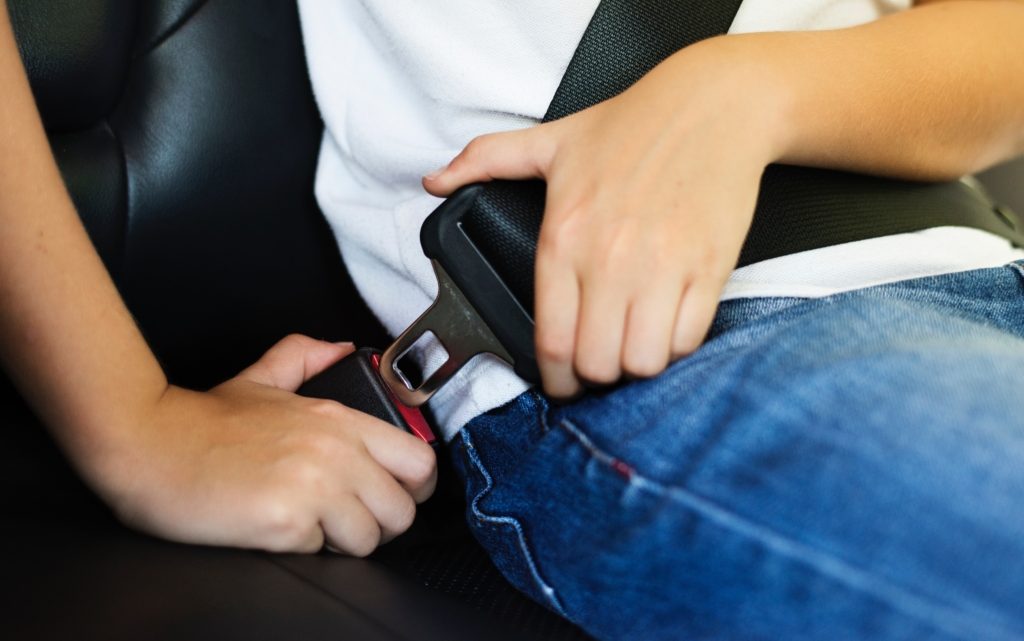September is recognized nationally as Baby Safety Month, meant to draw attention to keeping your children safe. The week of September 15th to 21st, 2020 is specifically dedicated to National Child Passenger Safety Week in the United States. With so much focus on keeping our children safe this month, it’s important to recognize how children can be impacted in the unfortunate case of a car accident. Proper use of a car seat is arguably the best way to prevent a child from unnecessary injury, but there are a few common misconceptions about car seats that many parents fail to recognize.
Lexington personal injury attorneys say car accidents are an incredibly common cause of serious injury in the United States. We depend on our cars for transportation in most cases, increasing our odds of a dangerous accident each time we get on the road. When traveling with children or babies in the car, the thought of getting into an accident becomes even more terrifying.
According to NHTSA data from 2017, one child under the age of 13 is involved in a crash every 32 seconds. In many cases these injuries can be prevented with proper use of car restraints like car seats, seat belts, and boosters.
Car Seat Safety
All 50 states have laws that require parents or caregivers to use car seats with their children. Car seats have to pass stringent safety standards and regulations from the federal government before they can be manufactured and sold. But securing a properly manufactured car seat is just a part of the responsibility a driver faces. The Juvenile Products Manufacturers Association lists a few important steps to follow after purchasing a car seat:
- Children and infants should ride rear-facing until they reach the height and weight requirements listed on the car seat packaging.
- Once forward-facing, children should be secured with a harness.
- Booster seats are ideal until a child can fit correctly in a seat belt alone.
- The back seat is the safest place for children under 13.
- Do not use a car seat or booster seat that is used, has been in an accident, or is missing the manufacturer’s label.
Do Car Seats Expire?
Many people aren’t aware that car seats have an expiration date. The standard expiration date on a commercial car seat is between 6 to 10 years, largely due to evolving safety standards. As technology improves, new safety features may become available to make these products safer for children. An older model could lack a piece of new technology that could end up saving a child’s life.
Similarly, the materials of older car seats will wear down with time. Safety straps may lose elasticity from wear and tear, and materials can start to decay in extreme hot and cold temperatures inside the car. Car seats and car parts are also susceptible to national recalls fairly often. It’s important to pay attention to these announcements, so you don’t put your child at risk. Register your car seat with the manufacturer immediately after purchase, so you will receive information in the event of a recall or important safety update.
How to Check Your Car Seat’s Expiration Date
Most manufacturers stamp the expiration date on the side base of the child’s seat. If there’s no listed date, base your judgement on the date of manufacture. If the product was manufactured within the last 6 years, you are likely within the car seat’s lifespan.
When shopping for a car seat, it’s recommended to buy new rather than used. Car seat expiration begins from the date of manufacture rather than the date of purchase, so a hand-me-down seat may not last as long as one you’ve purchased brand new.
Get It Checked By An Expert
Safety experts recommend getting your car seat installation checked by a safety professional in your area. Visit a Certified Child Passenger Safety Technician at a location near you to ensure that it’s safe before you child’s first ride. There will also be events across the nation on Saturday, September 21st for National Seat Check Saturday.
Car seat safety is critical to ensuring safe travel for the littlest members of your family. And as always, remember to properly buckle up each member of the family before hitting the road.





No Comment